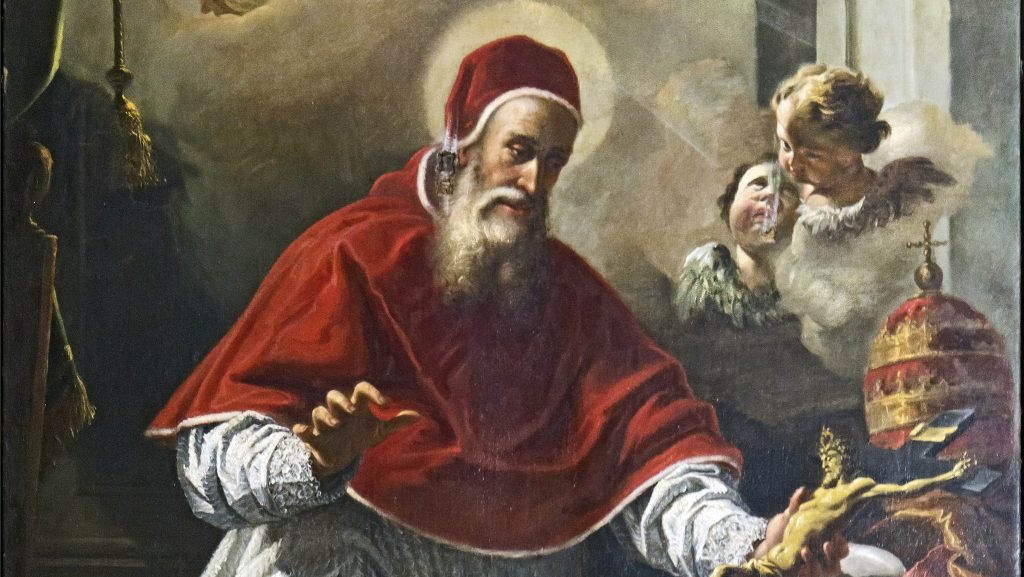St. Pius was born Michele Ghislieri, on January 17, 1504, in Lombardy. His parents were poor but of noble lineage. Michele worked as a shepherd until he was 14, when he met two Dominicans who recognized his virtue and intelligence. He joined their order, and was ordained a priest at age 24. For 16 years, Michele taught philosophy and theology, and served as prior for many houses. He was known for his penances, his long hours of prayer and fasting, and his holy speech.
In 1556, Michele was elected bishop of Sutri, and served as inquisitor in Milan and Lombardi. He then served as inquisitor general of the Church, and was made a cardinal in 1557. As inquisitor, he rigorously opposed heresies, and fought corruption wherever he encountered it.
On January 7, 1566, he was elected pope, with the influential backing of his friend St. Charles Borromeo, and took the name Pius V. Almost immediately after his election, he put a vast program of reform into action, getting rid of extravagant luxuries and giving the money to the poor, whom he gave personal care.
As pope, Pius was dedicated to applying the reforms of the Council of Trent, raising the standards of morality for the clergy, and supporting foreign missions. He revised the Roman Breviary and Missal, which remained in use until Vatican II’s reforms.
Over the course of his six-year pontificate, Pius was constantly at war with two massive enemy forces — Protestant heretics spreading doctrine in the West, and Turkish armies in the East. Pius battled the spread of Protestantism through education and preaching, with strong support for the newly formed Society of Jesus under St. Ignatius of Loyola. He excommunicated Queen Elizabeth I and supported Catholics who were oppressed by Protestant rulers.
One of the most famous successes of Pius’ papacy was the miraculous victory of the Christian fleet in the battle of Lepanto on October 7, 1571. When the Turks attacked the island of Malta, nearly every man defending the fortress was killed. The pope sent a fleet to meet the enemy, requesting that every man on board receive communion and pray the rosary. Throughout Europe, he called on Catholics to pray the rosary, and ordered a 40-hour devotion in Rome while the battle took place.
Although the Christian fleet was vastly outnumbered, they demolished the entire Turkish fleet. In memory of their triumph, the pope declared the day the Feast of Our Lady of the Rosary, because of her intercession. Pius has also been called the pope of the Rosary for this reason.
On May 1, 1572, Pope Pius V died of a painful disease, saying, “O Lord, increase my sufferings and my patience!” He is enshrined at Santa Maria Maggiore in Rome, and was beatified in 1672, canonized in 1712.

